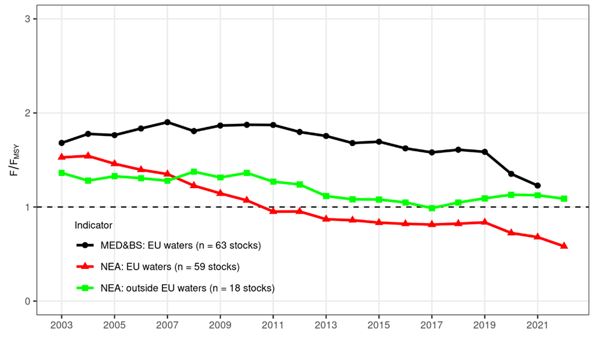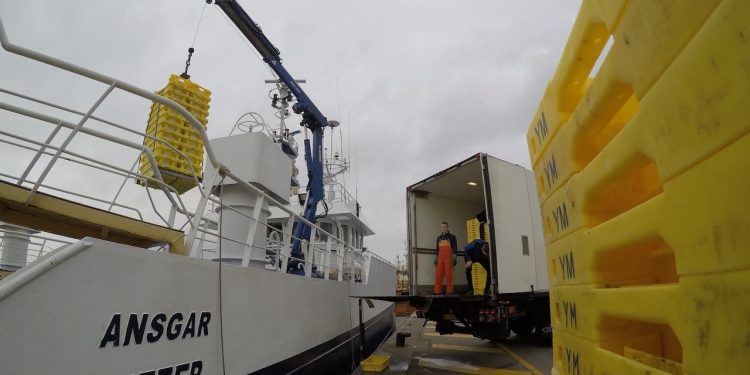There’s positive and negative news in the European Commission’s assessment of fish stocks, which will untimately have a strong bearing on the TACs and quotas for 2025.
The Commission’s Sustainable fishing in the EU: state of play and orientations for 2025 outlines an overall increase in the sustainability of the EU fisheries, fewer stocks are overfished, with a note of caution that more efforts are necessary to ensure the long-term sustainability of key species across all sea basins.

The report highlights that fish stocks in the North-East Atlantic on average are within healthy ranges, with the latest assessment pointing to the best sustainability results so far – particularly in the EU waters in the Atlantic, although several species essential for ecosystem balance and commercial purposes continue to underperform.
The picture for the Mediterranean and the Black Sea indicates gradual improvement, with much still to be done. Although fishing mortality rate is at its lowest level so far, it is still 20% above the recommended sustainability rate.
The bad news is the Baltic where the Commission reports that fish stocks continue to decline due to various pressures and four out of ten stocks in the Baltic are no longer targeted and may only be landed as by-catch.
The Commission’s communication indicates that fishing communities continue to be affected by climate change, leading to uncertainties due to the declining availability of fish stocks they depend on for their livelihood. This is also the case for communities relying on overfished stocks.
‘I appreciate that in the EU there are fewer stocks being overfished. Sustainably managed stocks provide a better economic basis for our fishers,’ stated Commissioner for Environment, Oceans and Fisheries Virginijus Sinkevičius.
‘While sustainability keeps improving fishers face important challenges. The Commission is now preparing an evaluation of the common fisheries policy to assess if it is meeting its objectives and to help my successor make the best-informed decisions.’









